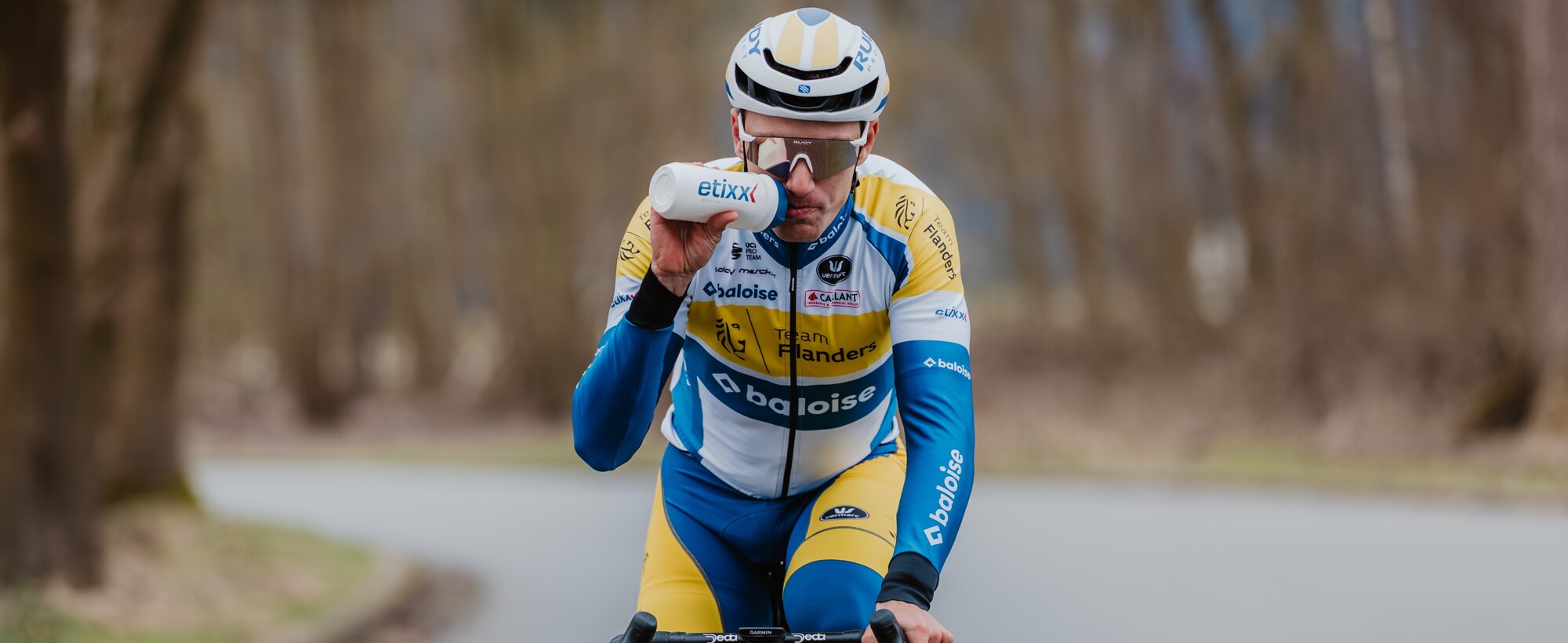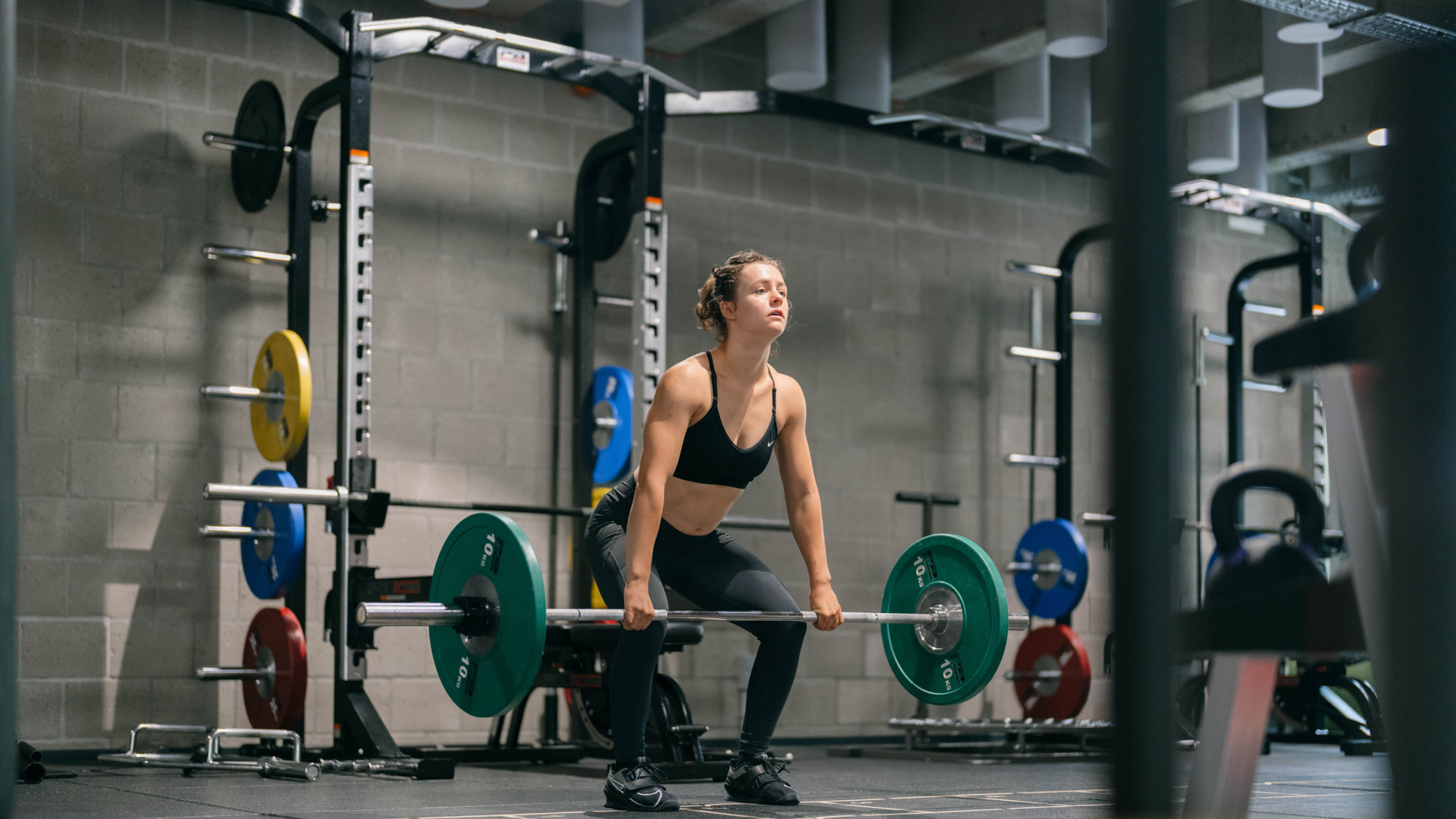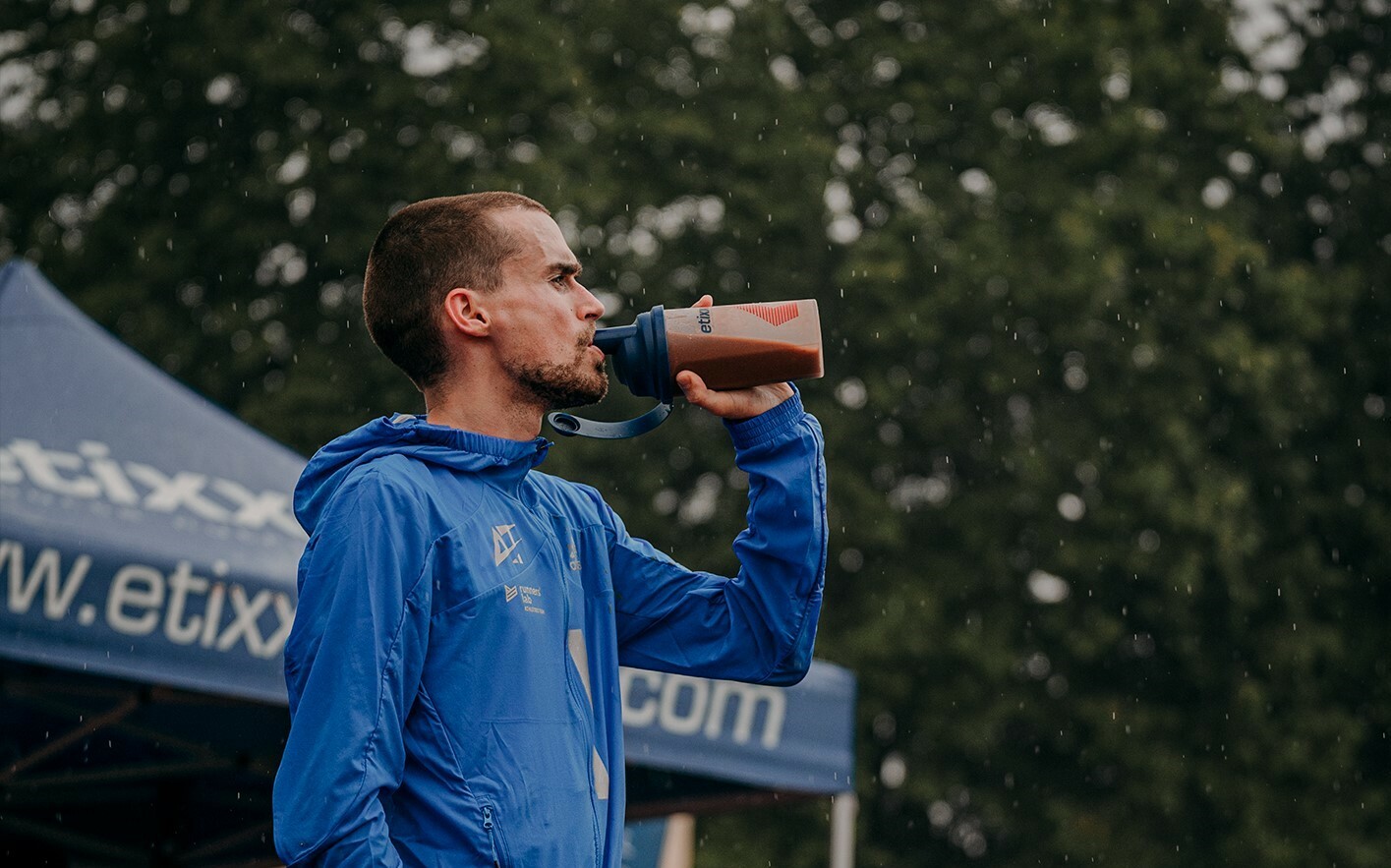Good hydration equals better performance!
Tuesday 21 February 2023

Sufficient training is important for success, but a proper intake of carbohydrates and fluids while cycling is just as important to achieve top performance. Indeed, low carbohydrate intake and dehydration are the main reasons why some cyclists fail to avoid the 'man with the hammer' during an effort. Using the right sports drink while cycling can help with this.
The most recommended sports drink while cycling is an isotonic sports drink. Apart from a good taste, the ideal isotonic sports drink should meet five guidelines:
1. Choose an isotonic sports drink
The ideal sports drink for cycling is an isotonic sports drink. This is because this sports drink contains as many dissolved particles as in blood plasma, so both fluids and carbohydrates are quickly absorbed in the intestines. Preferably, an isotonic sports drink contains 4 to 8 grams of carbohydrates per 100 ml, providing the necessary energy in addition to fluid.
There are also two types of sports drinks: hypotonic and hypertonic sports drinks. The difference between these two types is determined by the osmotic value of the drink, or the ratio between the dissolved particles of carbohydrates and electrolytes in the drink and the dissolved particles in the blood.
A hypertonic sports drink has a high concentration of dissolved particles, which keeps the fluid in the stomach longer. However, this can lead to gastrointestinal problems. A hypotonic sports drink, on the other hand, has a lower osmotic pressure, so carbohydrates are absorbed quickly, but also leave the body quickly.

2. The sports drink should be rich in minerals
It is important to replenish minerals that we lose through sweat. Sodium is especially important because this mineral retains moisture in our body longer and can prevent excessive fluid loss during exercise. Sodium also affects our sense of thirst. In fact, it makes us drink more and the absorbed fluid stays in our cells longer.
The ideal isotonic sports drink contains between 400-1100 mg of sodium per litre.
3. A good sports drink has normal acidity
Organic acids, such as citric acid, are often added in sports drinks to improve shelf life and taste. However, these acids have a major impact on the acidity (pH) of the drink. Low pH can lead to gastrointestinal problems and also negatively affects tooth enamel. Tooth erosion can even occur at pH levels below 5.5 in the mouth.
Cyclists who drink sports drinks while cycling are therefore well advised to choose an isotonic sports drink with a neutral pH of around 7.0 to avoid gastrointestinal complaints and tooth erosion.
4. The ideal sports drink contains a 2:1 ratio of glucose and fructose
In a sugar combination where there is twice as much glucose than fructose, the body can absorb more than 60 grams of carbohydrates per hour. This is especially important for cyclists doing long bike rides. Indeed, for efforts lasting more than 3 hours, a carbohydrate intake of 90 grams per hour is recommended to avoid depleting your energy stores.
However, it is not the case that your muscles can use unlimited amounts of carbohydrates. The amount of carbohydrates your muscles can absorb depends on how much your intestines can absorb. This is because the transporter in your intestines that absorbs glucose becomes saturated at a carbohydrate intake of about 1 gram per minute (or 60 grams per hour). As a result, excess carbohydrate is not absorbed and remains in your intestines.
Fortunately, other carbohydrate sources, such as fructose, can use other transporters in your intestines. This allows your body to absorb more carbohydrates and deliver them to your muscles. Scientific studies show that a mix of carbohydrates in the ratio of 2:1 glucose to fructose provides the highest absorption rate. Moreover, this mix reduces the risk of gastrointestinal upset compared to a sports drink containing only one type of carbohydrate.
5. Avoid synthetic sweeteners and flavours
Synthetic sweeteners and flavourings should be avoided in sports drinks at all times. Substances such as aspartame or acesulfame-K, while they can improve the taste of the drink, have no place in sports drinks for cyclists. Not only do they increase the risk of gastrointestinal problems, but they can also be detrimental to athletes' health. Therefore, it is essential to choose a sports drink that contains only natural ingredients.



